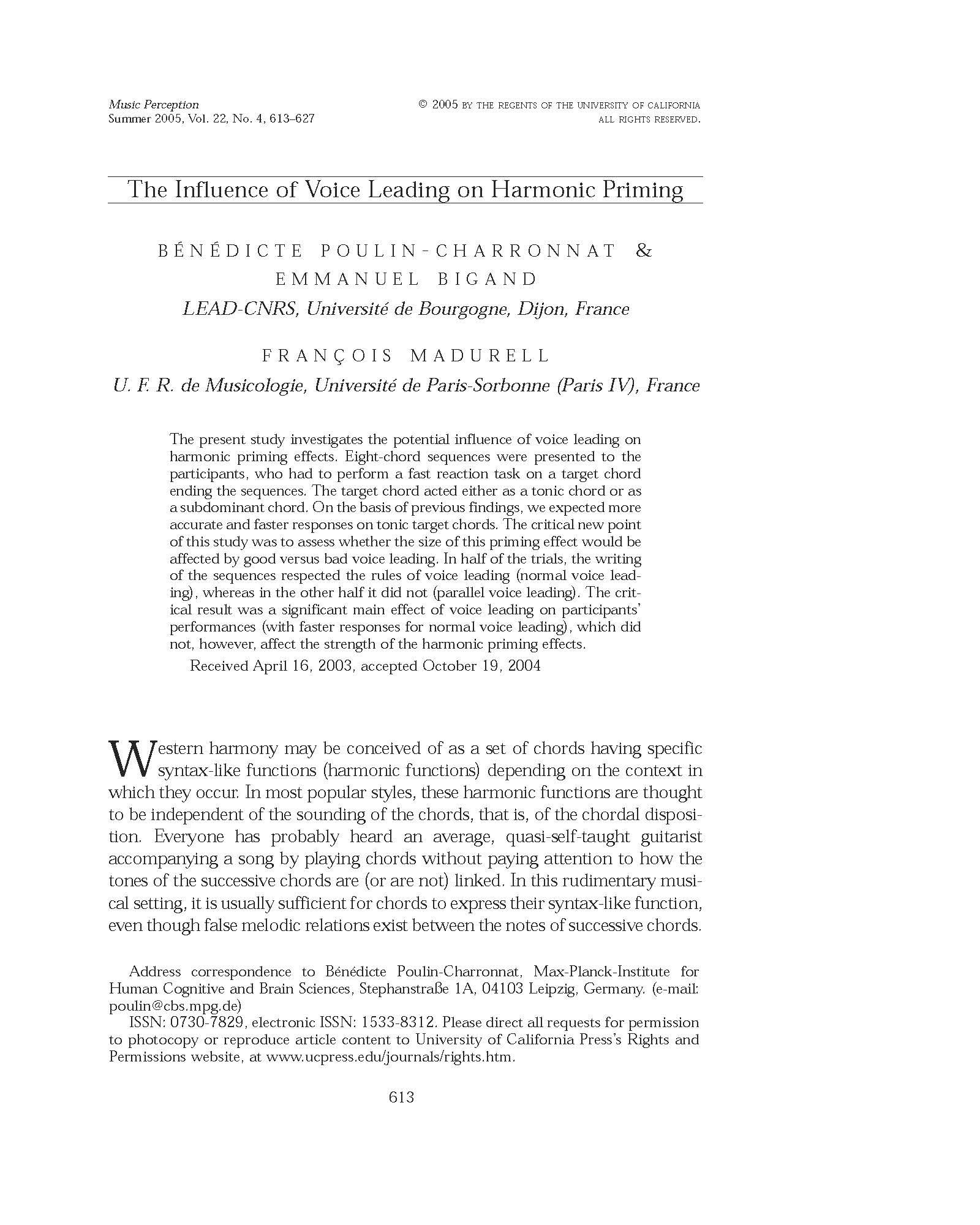The present study investigates the potential influence of voice leading on harmonic priming effects. Eight-chord sequences were presented to the participants, who had to perform a fast reaction task on a target chord ending the sequences. The target chord acted either as a ionic chord or as a subdominant chord. On the basis of previous findings, we expected more accurate and faster responses on tonic target chords. The critical new point of this study was to assess whether the size of this priming effect would be affected by good versus bad voice leading. In half of the trials, the writing of the sequences respected the rules of voice leading (normal voice leading), whereas in the other half it did not (parallel voice leading). The critical result was a significant main effect of voice leading on participants’ performances (with faster responses for normal voice leading), which did not, however, affect the strength of the harmonic priming effects.
The influence of voice leading on harmonic priming
